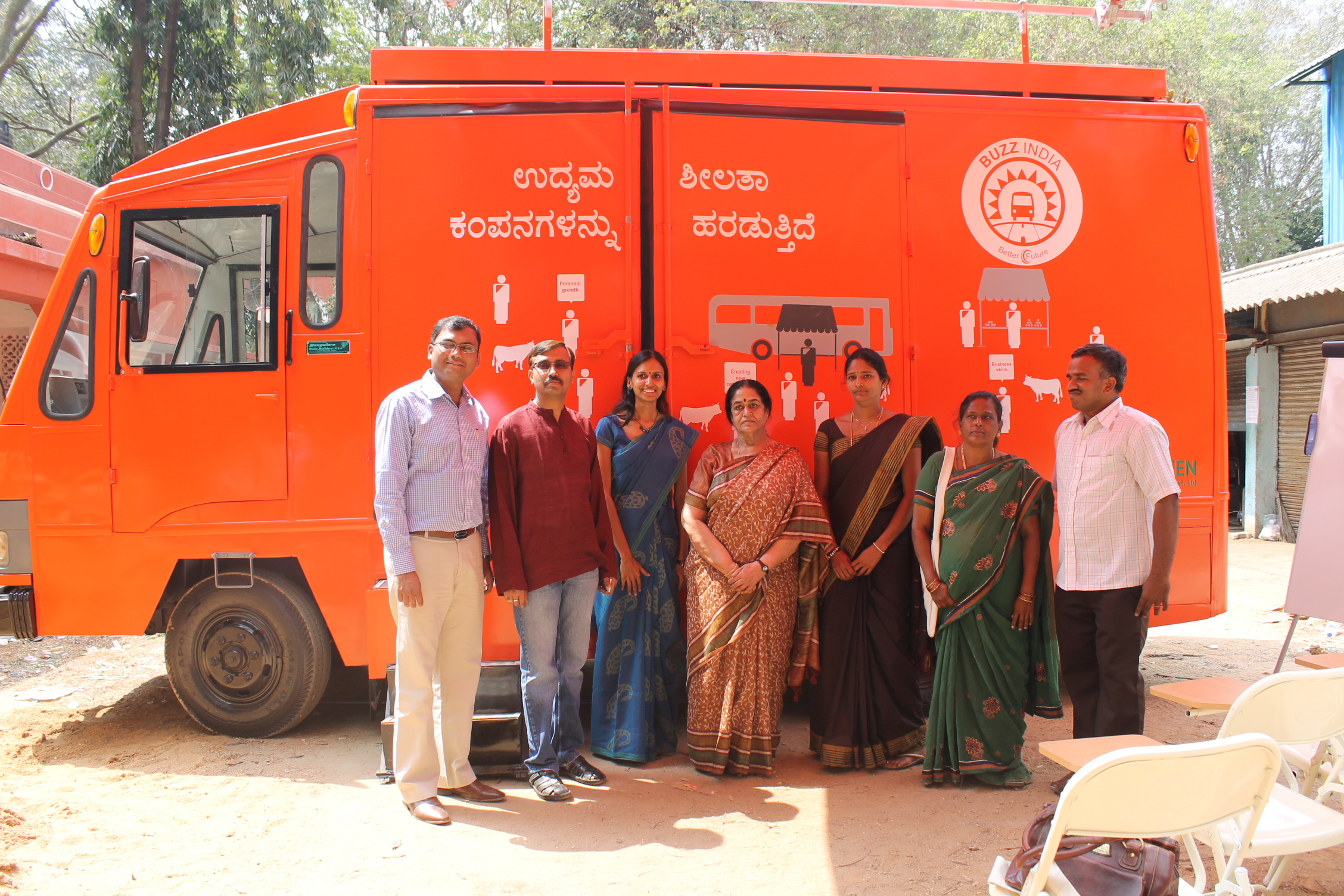Owing to the rapid growth of technology, machines are fast replacing manual labour. Globally, machines substituting labour and computers standing in for humans have exposed labour to vulnerability and uncertainty. World Bank data estimates 69% of today’s jobs in India are threatened by automation*. Robots replacing jobs en masse is still unrealistic in India, but the effects are already being felt. Indian textile giant Raymond is set to replace 10,000 jobs with robots over the next three years**. With automation taking on the routine tasks of today’s workplace, the jobs of the future will focus on skills like critical thinking and creativity.
Self-Employment and Entrepreneurship
The fast-growing India’s young population is adaptable, and future-oriented. However, only 1 out of 20 people have received any skill training as compared to 3 out of 4 people in Germany who are ready to enter the workforce. The pace of skill development has seldom matched that of technology in India. Skill training so far has not had the impact envisaged by government and policymakers. There are around 31 million unemployed Indians seeking jobs now—the highest since October 2016, according to a report published on 27th February by the Centre for Monitoring Indian Economy (CMIE). There are still several roadblocks to realise its potential and create a skilled global workforce.

Therefore, one of the answers lies in self-employment and entrepreneurship. Self-employment is being increasingly recognised as one of the prominent ways of income in developing countries. It reduces the burden on job creation and encourages self-sufficiency with the use of minimal resources. Self-employment and entrepreneurship can create jobs consistently and reduce the number of unemployed at a faster pace.
Buzz India, an incubatee of UnLtd India
Located in Karnataka, Buzz India, an incubatee of UnLtd India, trains and equips low-income women with financial, entrepreneurial and leadership skills that will help them combat poverty. They hold 2 three-hour training sessions with a week’s gap, and approximately 5000 women are trained per month. The women are introduced to concepts such book-keeping, money management, debt management and savings. To ensure long-lasting sustainable impact, Buzz selects women ambassadors (Gelathi) from among the trained women who become the primary point of contact for a group of women in the village.

Such entrepreneurial endeavours are becoming a global phenomenon where the discontented workforce is leaving behind the security of a corporate job in favour of being entrepreneurs. It is a new and growing behaviour in post-industrial countries like the United States, Europe and Australia, and is equally catching up as a way of life in India. The number of entrepreneurs from fields ranging from agriculture to manufacturing and the service sector in India is on the rise.
Happy Roots, a social enterprise incubated by UnLtd India, is building a food value chain which combines rural development and food innovation that empowers farmers and rural women. They work with farmer producer companies and NGO partners to train farmers and rural women in food processing and allied activities. They identify crops and source raw material directly from farmer groups, training rural women and Self Help Groups (SHGs) to manufacture value-added products at facilities managed by farmers and women SHGs themselves. Apart from creating employment opportunities, self-employment and entrepreneurship also keeps a check on the rural-urban migration in India.
The importance of self-employment in the context of the sustainable development goals – creating jobs, boosting economic growth and innovation, improving social conditions and addressing environmental challenges – has been reinforced by a number of central and state government schemes. In Mumbai, UnLtd India has been working with a number of social entrepreneurs across sectors, who have set up organisations who are promoting self-employment and entrepreneurship in both, rural and urban areas of India.
Being invested in the development of the skilling ecosystem, a critical need of the hour, UnLtd India partnered with J.P Morgan to host ‘Skilling Matters – Adapting to a Shifting Paradigm’ in March 2018. A discussion platform that engaged eminent stakeholders in the skilling sector to discuss the importance of cross-sector collaborations and focus on building skills for self-employment and entrepreneurship as potential solutions to the skilling gap in India.
Sources
*McKinsey & Company, McKinsey Global Institute, A Future that Works; Automation, Employment and Productivity, January 2017
**Economic Times, Raymond to replace10,000 jobs with robots in next 3 years, September 2016
Author: UnLtd India Team. The team can be reached at info@unltdindia.org.
The views expressed above belong to the author. NSN does not subscribe to the views and opinions expressed in the article.













